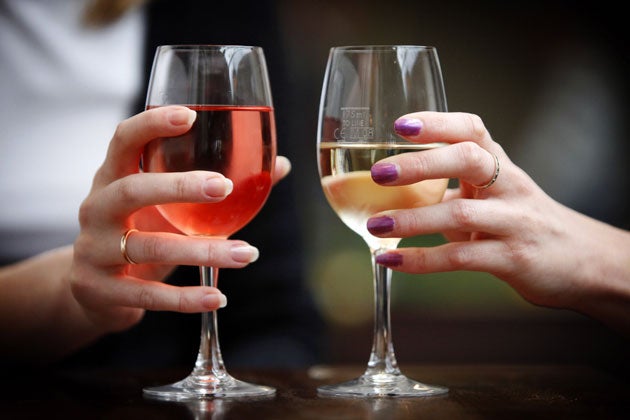Your support helps us to tell the story
From reproductive rights to climate change to Big Tech, The Independent is on the ground when the story is developing. Whether it's investigating the financials of Elon Musk's pro-Trump PAC or producing our latest documentary, 'The A Word', which shines a light on the American women fighting for reproductive rights, we know how important it is to parse out the facts from the messaging.
At such a critical moment in US history, we need reporters on the ground. Your donation allows us to keep sending journalists to speak to both sides of the story.
The Independent is trusted by Americans across the entire political spectrum. And unlike many other quality news outlets, we choose not to lock Americans out of our reporting and analysis with paywalls. We believe quality journalism should be available to everyone, paid for by those who can afford it.
Your support makes all the difference.Children who regularly see their parents drink are twice as likely to binge on alcohol themselves, according to a survey.
Youths who are left unsupervised are also more likely to drink, the Joseph Rowntree Foundation report found.
Researchers for Ipsos Mori questioned 5,700 teenagers in England, and found one in four 13-14-year-olds have been drunk more than once, compared to just over half of children (52%) who are 15-16.
Those who said they had seen their parents inebriated were twice as likely to have been drunk several times.
And the odds of a teenager having ever had an alcoholic drink are also greater if their parents do not know where they are on a Saturday night, or if they are allowed to watch 18-rated films unsupervised.
Claire Turner, from the Joseph Rowntree Foundation, said: "This research shows that parents can have more influence on their teenagers' behaviour than perhaps many assumed.
"Both what parents say and how they behave have a strong impact on their teenagers drinking, drinking regularly, and drinking to excess."
The survey found the influence of friends is the most significant factor in childhood drinking, as the likelihood of youths drinking to excess more than doubles if they spend more than two nights a week socialising.
Spending every night with friends multiplies the odds of drinking heavily more than four times.
The report concluded that schools are key to distributing information about drinking.
"The findings suggest that efforts to improve drinking behaviour among young people at a national policy level are best directed at supporting and educating parents," it said.
"This should include positive messages for parents about how they can influence their child's behaviour and stress the importance of parents' own drinking and what their children see and think about this.
"Friends are another key area of influence. Schools could help here by challenging incorrect perceptions about the regularity and scale of heavy drinking by peer groups.
"Schools could also be a channel for information, getting targeted messages to parents encouraging actions at specific times in their child's development."
Diane Abbott, the Labour health spokeswoman, said: "This report confirms that the Government's failure to take real action on alcohol pricing is helping to feed an epidemic of teen drinking.
"We should equip young people with the skills they need to resist peer pressure to go out drinking. There are concrete lessons to be learnt from overseas, where tried and tested programmes aim to reduce alcohol and substance abuse through classroom-based education. These types of programmes have had excellent success rates."
A Department of Health spokesman said: "Alcohol misuse is a major public health issue. We know that teenagers can be especially vulnerable to the harmful effects of drinking.
"For young people and children not drinking is the healthiest and best option."

Join our commenting forum
Join thought-provoking conversations, follow other Independent readers and see their replies
Comments